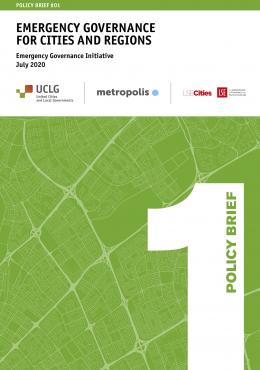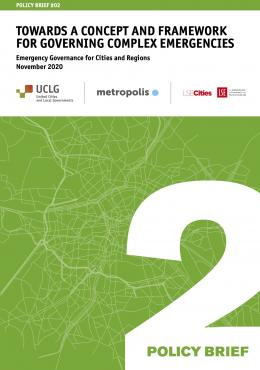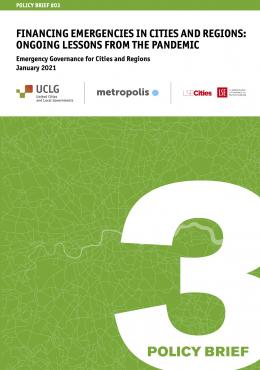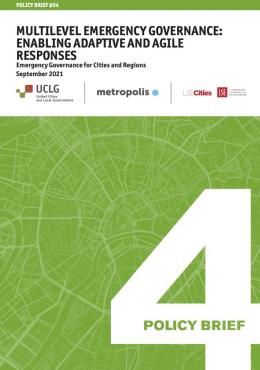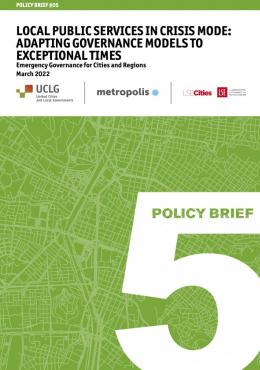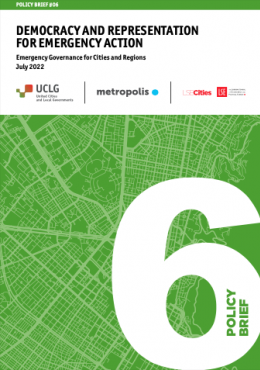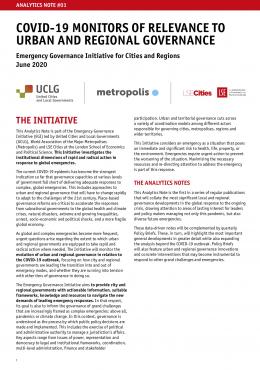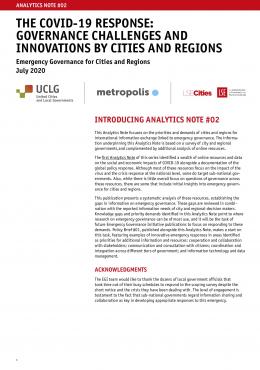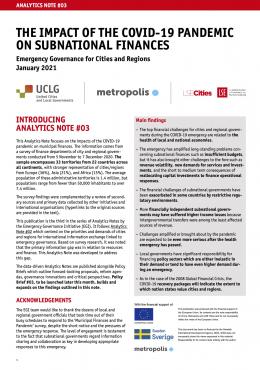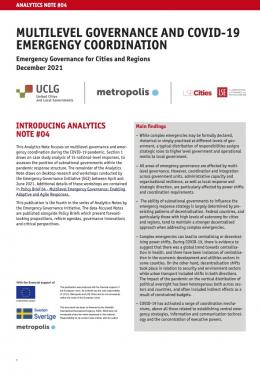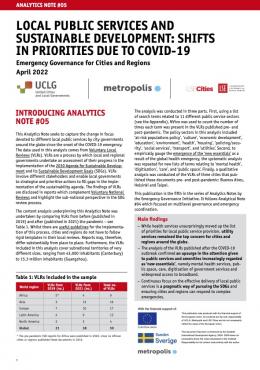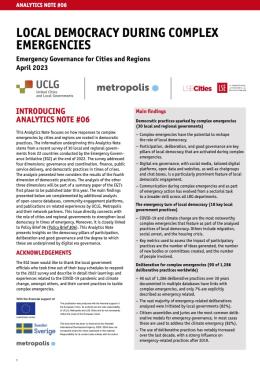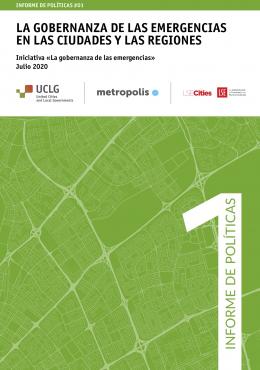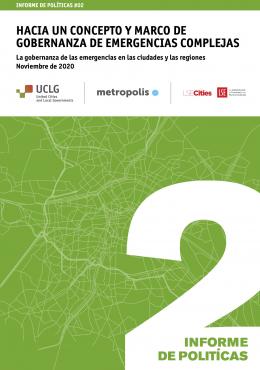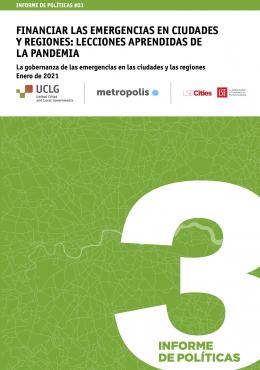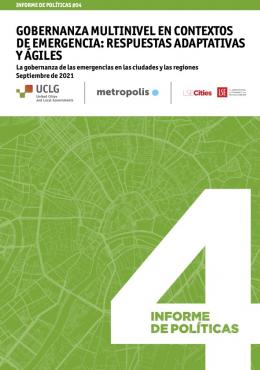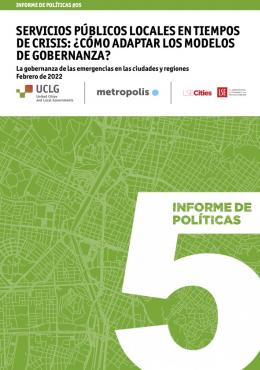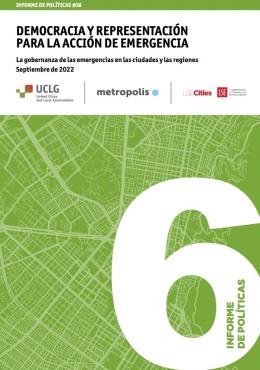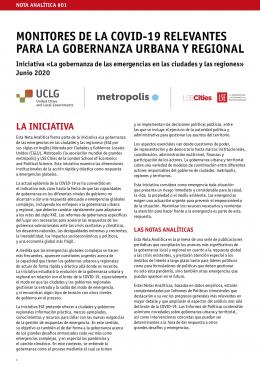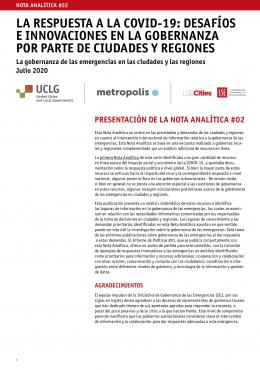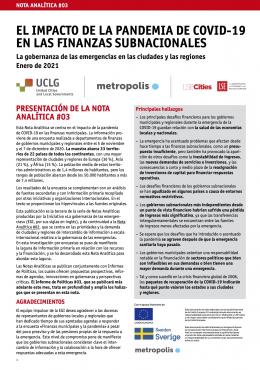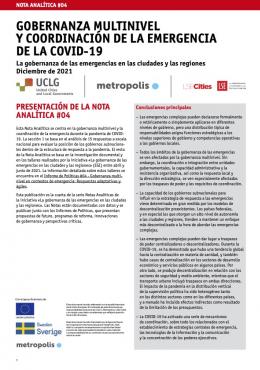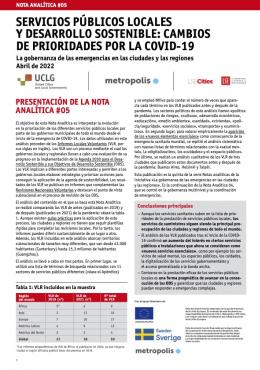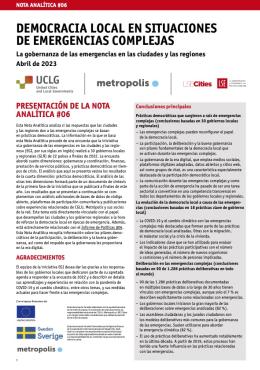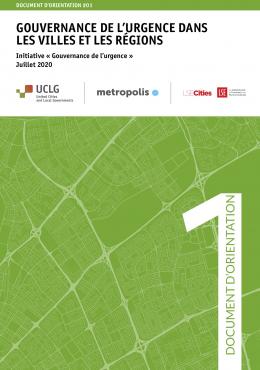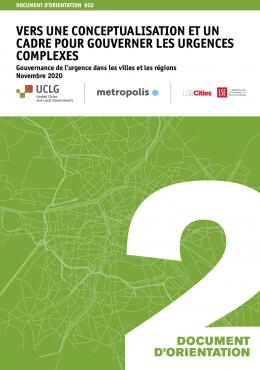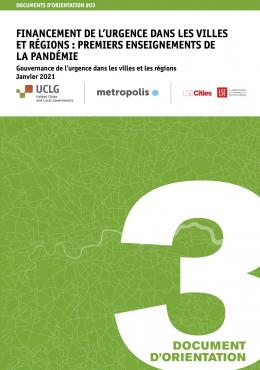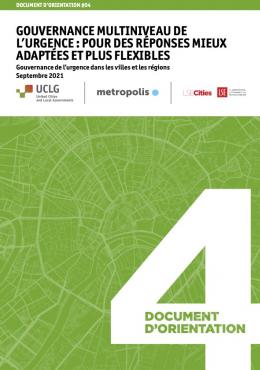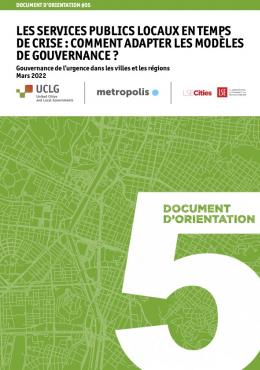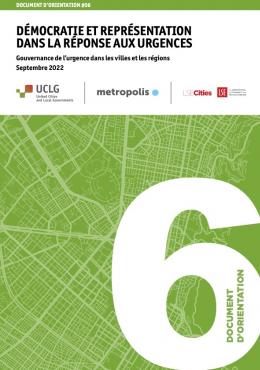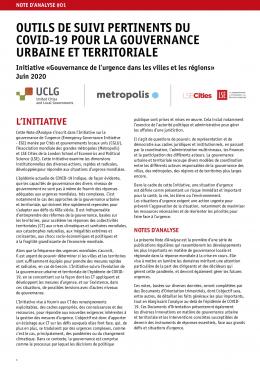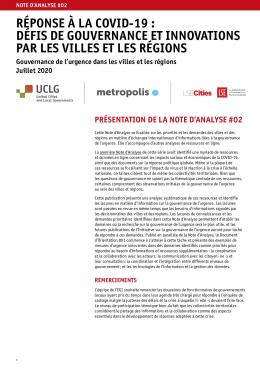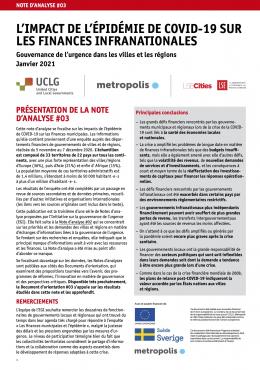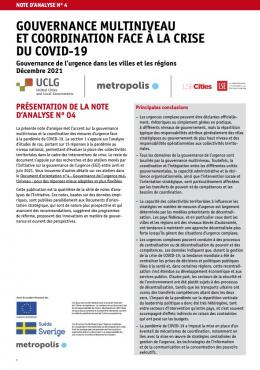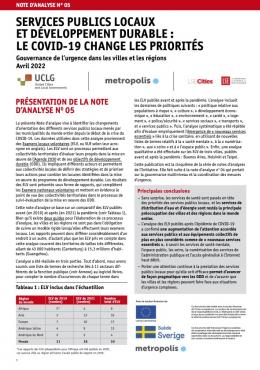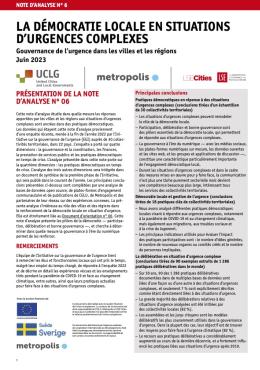UCLG, Metropolis and the London School of Economics - LSE Cities are joining forces to analyze the impact of the current global health crisis and the recovery process on the governance of our cities and territories. Local and regional governments are conscious that our world will never be the same and we will need to build responses to create safer and sustainable communities.
Aware of these paramount challenges, the Emergency Governance Initiative for Cities and Regions (EGI) aims at contributing to provide insights on how to build capacities to elaborate urban/territorial responses to complex emergencies and the governance of grand global challenges. It should further provide the local and regional government networks with the tools to facilitate renewed knowledge exchange.
UCLG, Metropolis and the London School of Economics - LSE Cities are joining forces to analyze the impact of the current global health crisis and the recovery process on the governance of our cities and territories. Local and regional governments are conscious that our world will never be the same and we will need to build responses to create safer and sustainable communities.
The initiative will build on the COVID-19 outbreak knowledge and practices currently being collected and shared as part of the Cities for Global Health and the #BeyondTheOutbreak initiatives developed by Metropolis and the UCLG network, including the USE Platform and Global Observatories.
Local and regional governments around the world have stepped up to the challenge of COVID-19 and are working tirelessly at the first line of defense of public service provision and social cohesion with the commons at the heart of the response. Nevertheless, there is evidence worldwide that empowered local leadership and strengthened multilevel governance systems are nowhere where they would need to be to respond to the new reality. There are great concerns about the safeguarding of local democracy, the protection of human rights frameworks and the sustainability of the public service provision. At a moment when governments at all levels need to play a significant role, it will be critical to develop new competences and capacities.
Aware of these paramount challenges, the Emergency Governance Initiative for Cities and Regions (EGI) aims at contributing to provide insights on how to build capacities to elaborate urban/territorial responses to complex emergencies and the governance of grand global challenges. It should further provide the local and regional government networks with the tools to facilitate renewed knowledge exchange.
Started in May 2020, the initiative has three main components:
- A three-month Pilot Project establishing critical priorities based on stakeholder engagement, testing different modes of collecting and analyzing data, and experimenting with relevant formats of reporting back to the target audiences.
- An Emergency Transitions Monitor collecting and analyzing data from cities and regions on how they are transitioning into and out of emergency modes. This monitor will initially focus on COVID-19 urban governance and actions while centrally considering interventions beyond the immediate crisis responses. In particular, it will monitor to what extent crisis response experiments may become new fixtures of post-crisis governance.
- A Special Report on ‘Emergency Governance for Cities and Regions’ summarizing the most relevant insights emerging from the Emergency Transitions Monitor alongside broader frameworks, knowledge and evidence on emergency governance. It will present findings on how cities and regions are reframing grand challenges as emergencies and how they are addressing related emergency responses. The report will also make suggestions for governance innovations addressing emergency modes.
Management Group
Philipp Rode, Project Co-Lead, LSE Cities
Edgardo Bilsky, Project Lead, UCLG
Oscar Chamat, Project Lead, Metropolis
Nuno F da Cruz, Project Co-Lead, LSE Cities
Ainara Fernández Tortosa, Researcher, UCLG
Anna Calvete Moreno, Researcher, UCLG
Cécile Roth, Researcher, UCLG
Research and Coordination
Catalina Duarte Sánchez, Project Coordinator, LSE Cities
Rebecca Flynn, Project Coordinator, LSE Cities
Nuno F da Cruz, Project Co-Lead, LSE Cities
Catarina Heeckt, Researcher, LSE Cities
Bethany Mickleburgh, Researcher, LSE Cities
Alex Gomes, Researcher, LSE Cities
Mirjam Sagi, Researcher, LSE Cities
Ainara Fernández Tortosa, Researcher, UCLG
Anna Calvete Moreno, Researcher, UCLG
Cécile Roth, Researcher, UCLG
José Álvarez, Policy Officer, UCLG
Oscar Chamat, Project Lead, Metropolis
Lia Brum, Researcher, Metropolis
Governing Board
Edgardo Bilsky, UCLG
Emilia Saiz, UCLG Secretary General
Jo Beall, Distinguished Policy Fellow, LSE Cities
Octavi de la Varga, Metropolis Secretary General
Oscar Chamat, Research and Policy Officer
Philipp Rode, Executive Director, LSE Cities
Ramatouka Saw, Chief Deputy of Cabinet of the Mayor of Dakar
Ricky Burdett, Director, LSE Cities
Sithole Mbanga, Deputy Secretary General of UCLGA


